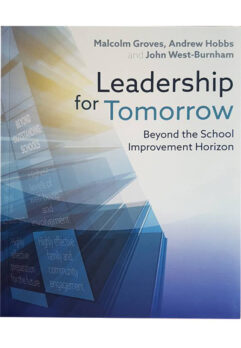When Leadership for Tomorrow was delivered shortly before half-term, I was filled with anticipation: here was a chance to glimpse the future and prepare to lead it, particularly useful as I was about to embark on my first CEO post.
I’m sorry to say I was disappointed, though by the style rather than the substance, and the lack of empirical evidence and practical tips, which could have brought what is mostly pretty dry theory and over-complex writing to life.
In a quirky “futureword” at the end of the book, the authors imagine the year 2040, and a day in the life of “the executive coordinator of Ash Valley Learning Community”, whose day starts at 4.30am with a meeting of holograms. So far so sci-fi, but it’s effective in illustrating the point that we are preparing our pupils for a future that is hard for us to imagine.
By contrast, the book’s format and style took me firmly back to the twentieth century, and the textbooks and journals of university. My Pavlovian response was to get out a highlighter and scrawl some marginal notes. If I weren’t committed to writing this review, my even more instinctive reaction would have been to put the book down and leave it there. That would have been a great shame because it contains plenty for outward-looking, forward-thinking leaders to chew over.
The core proposition is that we need to move beyond the narrow view that school improvement hinges on the things we can control in schools because “the tragedy of school change is that only about 30 per cent of the explanation for variations in school achievement appears to be attributable to factors in the school”. To better serve our children, we need to appreciate that change will be organic and non-linear, shaped by a range of influences both in and outside schools, that it is our job as leaders to nourish and connect.
The truth of this argument is demonstrated every day in schools working hard to meet the complex needs of disadvantaged pupils as individuals, by connecting with their lives beyond school and the different agencies that can help. For these schools, children and communities, what the authors propose is important for now as much as preparing for tomorrow.
At times the book could have been bolder. In a chapter that will appeal to anyone disillusioned with the narrowing curriculum and the emphasis on what can be measured over what matters, the authors argue to define achievement more broadly. They encourage us to use the communities we serve so our schools are rooted in the local area.
Given the fascinating global trends they summarise, they could have gone further to articulate a definition of achievement that’s also rooted in these. Similarly, while I agree schools should strive to secure the “highest levels of wellbeing and involvement”, the book could be braver in championing them for their intrinsic value, rather than a connection with achievement, which – while intuitively right – isn’t proven in the book.
Part three seeks to debunk the myth that there is a single right way to be a successful leader and describes the six “defining characteristics of leadership for tomorrow”: a clear sense of values and personal authenticity, a commitment to fostering quality relationships, an understanding of complexity allied to a deep sensitivity to context, a commitment to meaningful collaboration, a focus on building community capacity, and “a loose-tight leadership balance which combines empowerment and agency with clear values, a shared purpose, and joint accountability”. Jargon aside, these are certainly behaviours that I, like many leaders, aspire to.
But herein lies my final concern: while the converted will find much to hold onto in this book because it aligns with their values and beliefs, it provides neither sufficient evidence nor the clear and compelling arguments needed to win over the sceptics. That matters because our children and communities deserve more leaders rising to the challenges the book describes.













Your thoughts